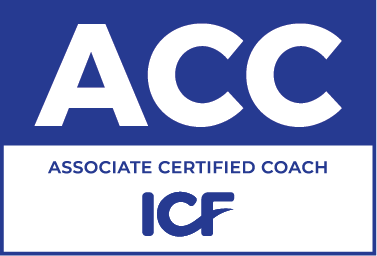Career Change during Covid

Changing your career is never straightforward and it is particularly challenging now that we are in the middle of a pandemic. Should you even contemplate such a move at this time? Your head may tell you to be cautious. After all, within the UK many employees and businesses are facing enormous uncertainty and disruption as a result of Covid 19. In particular, the ‘Covid Generation’ of young people are facing a jobs’ crisis like never before. So the time may not be right to make the change. But what if your heart tells you otherwise? What if the pandemic, which has turned our world upside down, is making you think again? What should you do?
Don’t give up your ambition
While things may feel bleak at the moment, it’s important to hold on tight to your ambition if you want to make that career change. As Mark Twain said : ‘Twenty years from now you will be more disappointed by the things you didn’t do than by the ones you did. So throw off the bowlines. Sail away from the safe harbour. Catch the trade winds in your sails.’ So even though you may feel despondent at times, make a space for yourself in order to create a compelling vision of your future job. Visualise what that job would look and feel like. Note what skills are required but also include aspects such as the environment and work culture relating to it. Covid is making many of us feel very disempowered at the moment but now may be the time to start taking control again.
Build resilience while you make the change
Thinking and planning for a career change can be unsettling. But this can be overcome by drawing on your resilience and bolstering your wellbeing. According to Wellbeing, Resilience and Engagement Practitioner , Caroline Arora, resilience can be built by using 4 tools :
1. Remind yourself why you are making a career change and connect with its deeper meaning. For example, you may want to take up a career where you can feel more fulfilled and where you can make a difference.[Meaning tool]
2. Work out a plan for your change and map it out in as much detail as possible. It might change from time to time, particularly if you have a setback but the important thing then is to regroup and move forward. [Plan tool]
3. Connect with others and get support from them, including those who have made a similar career change. Their help can be invaluable in keeping you on target. [Engagement tool]
4. Finally, don’t forget to take stock of your achievements every so often. Even though the goal may be some way off, it is important to remember that you are making progress and you should acknowledge yourself for that.[Celebrate tool]
Maintain your wellbeing
Whilst planning and working towards a career change can also be energising, it can sometimes feel hopeless and debilitating. Not every day will you wake up on top form ready to make some brave decisions. So maintaining your wellbeing, both mental and physical, is essential. Treat this as seriously and plan for it as you would in other parts of your life. In terms of your wellbeing ensure you get what you need, whether that is enough sleep, time with the family or exercise. Taking a short break from the things you find stressful will help to keep you strong and on track and maintain a balanced perspective.
Put numbers to it
One of the biggest barriers to career change is finance. Understandably, you may feel that the prospect of abandoning a well paid and secure job for something new and unexplored is just too daunting a prospect. But as Simonne Gnessen founder of Wise Monkey Financial Coaching points out, there are practical strategies which can be adopted to make you feel calmer about the situation. Once you have decided on your career plan ‘put numbers to it’. Make an accurate assessment of what this career move will cost you. Work out the financial implications of retraining and a drop in salary for example and compare that with your current financial situation, including any assets, debt or savings you may have. Once you know what sum of money is needed you can then start to think creatively of how you achieve it. Gnessen for example offers some ideas such as remortgaging, renting out a room in your home and exploring government grants. Also, whilst working and earning in your present job you can start taking relevant part-time courses and building up your knowledge of the new career before you leave.
Take ownership
Career paths are much more complex than they were when I was a schools’ careers advisor many years ago. The idea of a job for life has fast disappeared. People enter and re-enter jobs frequently, moving upwards and often sideways for promotion and development. As Helen Tupper and Sarah Ellis illustrate in describing their own experiences of working life in their book The Squiggly Career, traditional career paths are not ‘linear anymore …the career ladder was gone and in its place was the squiggly career.’ As they discovered, being proactive and taking ownership of your career, can help to plot a way through. And taking ownership means firstly knowing what your strengths and personal values are so you can make the most of them in any future career. Recognising these can help to grow self confidence and self belief, something which can be motivating and can support you in your career journey. But sometimes this can also involve moving from familiar to unfamiliar territory. If that happens, it is really useful to reach out to others and find a good network of people who can help you. As a Member of the Welsh Parliament for many years I was fortunate to have had the support of many excellent people and systems which enabled me to carry out my role effectively. However, when I chose to stand down from politics and set up my business, I felt very isolated for a while. But joining a number of business networks brought me into contact with some fantastic individuals. They were able to share their expertise and experience and were invaluable in helping me to make my big career change.
If you would like my support in helping you make your career change then please email me on chris@christinechapmancareercoach.co.uk




